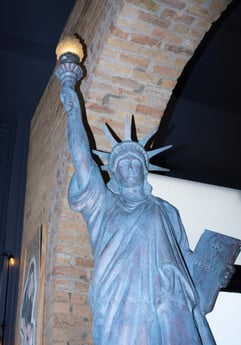But in my Dreams (2022_2023)
Aung Chaimt said, “I have a comfortable life here, but I do miss home. I went back to Myanmar many, many times,” he paused, “but in my dreams.” Then he laughed.
Aung Chaimt left Myanmar in 1990 for political reasons after the 1988 uprising. Decades of turmoil—civil war and ongoing military oppression—have led to the massive displacement of people from Myanmar. Over 200,000 members of the Myanmar diaspora have resettled in the US, forming ethnically and religiously diverse communities. Yet, even at a distance, the trauma of dictatorship, displacement, and political violence lingers.
Beyond the struggles of resettlement—racial discrimination, language barriers, loss of belonging, and limited access to healthcare—mental health remains an unspoken crisis. Many in the diaspora face financial and legal obstacles that prevent them from accessing mental health support. Meanwhile, within Myanmar, mental health education remains almost nonexistent, and the topic itself is taboo.
Yet, healing takes shape in other ways. Cultural practices—communal gatherings, food traditions, and shared rituals—offer alternative mechanisms for resilience and care.
Using a collaborative photographic approach and active listening, I engage with the Myanmar diasporic community in Minnesota. As someone who arrived in the US after the 2021 coup, working with this community has been a way to rebuild my own sense of belonging and self-care. At the same time, it has pushed me to unlearn the false histories I was taught, as I confront the systematic Burmanization of ethnic minorities perpetrated by my Burmese ancestors.
This project seeks to celebrate resilience among Myanmar’s diverse ethnic immigrants and highlight how cultural practices within the diaspora serve as a form of mental health care—an act of survival shaped by displacement, memory, and the border regime.



